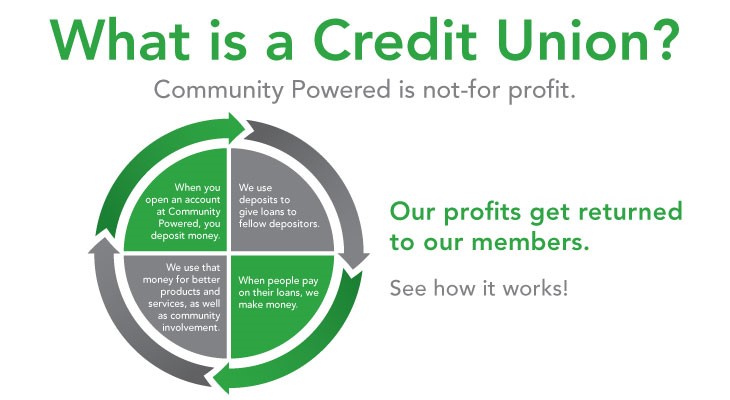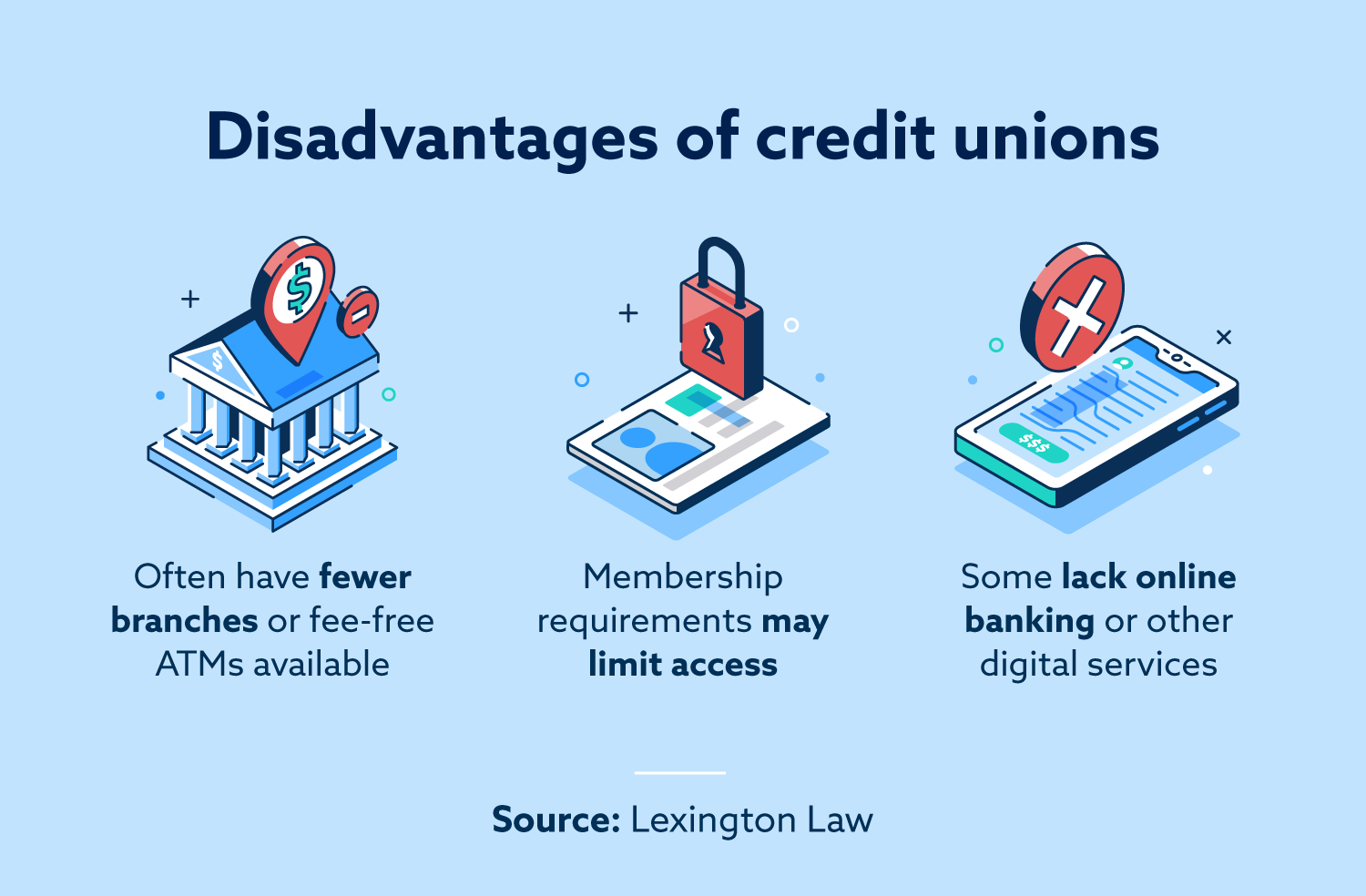Hybrid Line of Credit: Flexible Financing Options from Your Wyoming Credit Union
Hybrid Line of Credit: Flexible Financing Options from Your Wyoming Credit Union
Blog Article
The Ultimate Guide to Comprehending Credit Scores Unions

Credit score unions stand as distinct monetary entities, rooted in concepts of mutual assistance and member-driven procedures. As we browse with the complexities of credit scores unions, an informative trip waits for to drop light on these member-focused institutions and just how they vary from standard financial institutions.
What Are Cooperative Credit Union?
Lending institution are member-owned financial institutions that supply a variety of banking services to their participants. Unlike conventional banks, cooperative credit union operate as not-for-profit organizations, indicating their key focus gets on offering their members instead of optimizing earnings. Members of a cooperative credit union generally share a common bond, such as helping the same company, coming from the same neighborhood, or belonging to the exact same company.
One of the crucial advantages of credit report unions is that they usually offer higher rates of interest on interest-bearing accounts and reduced rate of interest on lendings compared to banks. Hybrid Line of Credit. This is since lending institution are structured to benefit their members straight, permitting them to pass on their earnings in the form of much better rates and less charges. Furthermore, lending institution are recognized for their customized customer care, as they focus on developing relationships with their members to understand their distinct economic requirements and goals
Background and Advancement of Lending Institution
The roots of member-owned economic cooperatives, known today as lending institution, trace back to a time when communities looked for choices to typical banking establishments. The idea of debt unions come from the 19th century in Europe, with Friedrich Wilhelm Raiffeisen frequently attributed as the pioneer of the cooperative banking motion. Raiffeisen founded the first recognized cooperative credit union in Germany in the mid-1800s, emphasizing community support and self-help principles.
The development of lending institution proceeded in North America, where Alphonse Desjardins developed the initial cooperative credit union in Canada in 1900. Soon after, in 1909, the initial U.S. cooperative credit union was developed in New Hampshire by a group of Franco-American immigrants. These early debt unions run on the essential concepts of mutual aid, democratic control, and participant possession.
With time, credit scores unions have expanded in appeal worldwide because of their not-for-profit framework, focus on offering participants, and offering competitive economic products and solutions. Today, credit rating unions play a vital function in the monetary industry, offering community-oriented and obtainable banking alternatives for individuals and services alike.

Membership and Eligibility Requirements
Subscription at a credit report union is commonly restricted to people satisfying details qualification standards based on the organization's founding concepts and regulative demands. Some credit scores unions may only serve individuals that function or live in a specific location, while others may be customized to employees of a certain company or members of a certain association.
Additionally, lending Visit This Link institution are structured as not-for-profit organizations, meaning that their key goal is to serve their members instead than produce revenues for shareholders. This emphasis on member service typically equates into more tailored focus, lower fees, and affordable rate of interest on lendings and savings accounts. By meeting the eligibility requirements and ending up being a member of a credit scores union, people can access a range of economic services and products tailored to their details requirements.
Solutions and Products Supplied
One of the vital elements that sets credit score unions apart is the diverse series of economic product and services they provide to their participants. Credit score unions typically provide traditional banking solutions such as savings and examining accounts, finances, and charge card. Participants can additionally gain from investment services, including retired life accounts and economic preparation support. Many lending institution provide competitive rate of interest on cost savings accounts and fundings, as well as reduced charges compared to conventional financial institutions.
Additionally, cooperative credit union often give practical online and mobile banking options for participants to quickly manage their finances. They might provide rewards such as shared branching, permitting members to access their accounts at other credit rating unions throughout the nation. Some cooperative credit union also provide insurance coverage products like life, home, and auto insurance coverage to aid members secure their properties and loved ones.

Advantages of Banking With Lending Institution
When considering financial institutions, exploring the advantages of banking with debt unions discloses one-of-a-kind advantages for members looking for individualized solution and competitive prices. One considerable advantage of lending institution is their concentrate on customized customer care. Unlike large financial institutions, credit scores unions are member-owned and focus on building strong connections with their participants. This means that lending institution personnel commonly have a much deeper understanding of their participants' financial needs and can use customized remedies to aid them accomplish their goals. Furthermore, cooperative credit union are understood for using affordable rate of interest prices on savings and finances accounts. Due to the fact that they top article are not-for-profit organizations, cooperative credit union can frequently offer lower lending rates, greater financial Find Out More savings prices, and reduced costs contrasted to traditional banks. This can result in considerable expense savings for members in time. Overall, banking with a debt union can give a much more personalized, cost-efficient, and member-centric financial experience.
Conclusion
In verdict, credit history unions stand out as member-owned monetary institutions that focus on serving their members over making best use of earnings. With origins dating back to 19th century Europe, credit report unions adhere to principles of common help and member ownership.
Credit history unions are member-owned economic institutions that use an array of financial solutions to their participants. The principle of credit report unions come from in the 19th century in Europe, with Friedrich Wilhelm Raiffeisen commonly attributed as the leader of the participating financial activity.The evolution of credit report unions continued in North America, where Alphonse Desjardins established the very first credit report union in Canada in 1900. Credit history unions generally offer conventional banking solutions such as financial savings and inspecting accounts, loans, and credit report cards.When considering economic organizations, exploring the benefits of financial with credit report unions discloses special advantages for participants looking for individualized solution and competitive rates.
Report this page